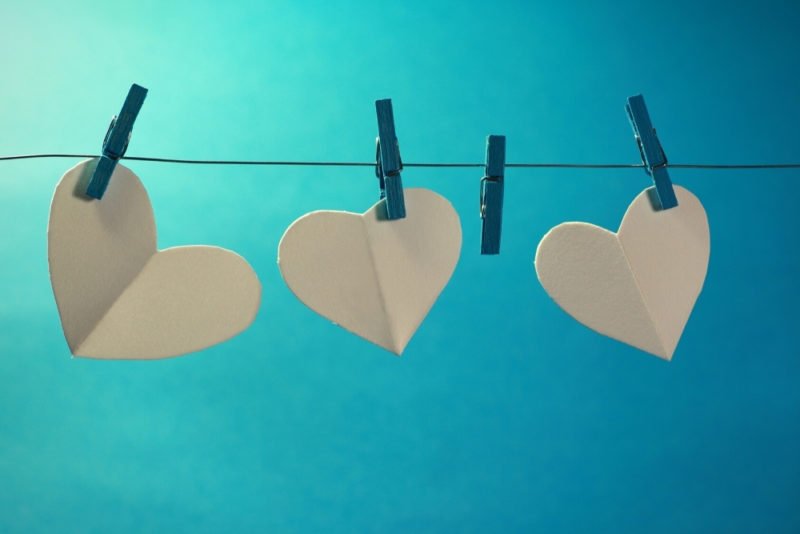
If you’ve explored intuitive eating, you’ve probably intellectually accepted that diets don’t work. You may even feel some relief at the idea of never again putting yourself through the punishing routine of restricting food, calories, macros, points. Yet, given all that, you might feel emotionally that your life has been upended.
You can know that there are countless ways to care for your health that don’t require weight loss. You can know that many people appreciate, respect, or even love their bodies at whatever size and shape they are currently at. Yet you may feel conflicted about giving up dieting.
The process of learning and practicing intuitive eating can cause some really big emotions to start bubbling up – or even crash into you with the force of a tsunami. One of these emotions is grief.
Part of breaking free of dieting and moving towards body and size acceptance is grieving what you’re leaving behind. I don’t mean giving up the rollercoaster of yo-yo dieting. I don’t mean the deprivation of making certain foods off-limits and the guilt of eating those foods when you “cheat” on your diet or quit your diet altogether. The grief I’m talking about is what you experience when you give up the fantasy of having a certain type of body – and the life you always imagined would come with it.

Giving up the fantasy
You know the fantasy I mean. While each person has their own hopes and dreams about how their life will turn out, there are certain common themes with weight loss fantasies:
- You’ll be more confident
- You’ll have more friends
- You’ll be more desirable to potential romantic partners
- You’ll land a better job…or a promotion
- You’ll have more fun shopping for cute clothes
- You’ll have boundless energy and perfect health
- You’ll finally do all the things you’ve been putting off, like wearing a bikini or traveling to Paris
- You’ll be able to eat what you want…and not regain the lost pounds
These fantasies don’t come to us out of thin air. They’re fed to us not just through advertisements for weight loss programs and products, but through society, especially the media. How many TV shows and movies do you see where people in larger bodies have oodles of friends, a great partner, and a fulfilling, successful life?
Even if you embrace size acceptance in theory, it’s common to still have ambivalent or even negative feelings about your own body.
I was recently introduced to the work of therapist Jeanne Courtney, including her 2008 paper, “Size Acceptance as a Grief Process.” She writes about how as women let go of the idea of controlling the size and shape of our bodies, we experience loss and lose any hope of escaping society’s (and our own) contempt for imperfect bodies. We lose hope of reaping all the rewards that come with having thin privilege. If you’re in a larger body and have joint or mobility issues, you lose the hope of eliminating those problems (and odds are at least one healthcare provider suggested “lose weight” as a simple remedy).
She describes how the body acceptance process mirrors the five stages of grief.

Stages 1 and 2: Denial and Anger
In the denial, stage, you might accept that weight loss is unsustainable for most people, but continue to hold out hope that you are one of the rare unicorns who can lose weight and keep it off for good. That you can overcome biology if you just work hard enough. You’re more likely to still hold this hope if your body does tend to respond to weight loss attempts, albeit temporarily.
You may minimize the struggle to control your body by trying to persuade yourself that struggling against your own body – rather than challenging society’s body standards – is normal. Odds are you feel detached or dissociated from your own body. Courtney gives the example of knowing exactly how many calories you’ve eaten but having no idea in a given moment whether you feel hungry.
In the anger stage, you might direct your emotion internally or externally. If you are familiar with size acceptance and society’s unrealistic pressures to be thin, anger may be directed at the fat phobia you observe and possibly experience in the world. If you are not familiar with the idea of size acceptance, you may feel angry at yourself for still not being able to lose weight and keep it off. This can lead to self-blame and compulsive dieting in an attempt to control or even punish your body.

Stage 3: Bargaining
If you blame yourself for “failing” at diets, you may see your current body as some sort of punishment for your failure. You might bargain for one more chance to “win” with renewed self-discipline and deprivation. Courtney says the cycle of failing and bargaining can happen for many years.
Some people who are clued into size acceptance find themselves giving up on yo-yo dieting per se, but still end up making a “bargain” between the conflicting desires to control their bodies (to satisfy societal ideals) and push back against these ideals. This bargain may be to continue to try to shrink and reshape their bodies, but now doing it in the name of “health.” The pursuit of “health” can take on moral overtones, with as much shame and self-hatred when you miss the gym or choose the cheeseburger over the salad as someone dieting for aesthetic reasons would feel.
So how do you know if you are bargaining rather than simply nurturing your body with enjoyable movement and gentle nutrition? When your behaviors become compulsive and have a distinct whiff of self-deprivation. Or, as Christy Harrison, host of the “Food Psych” podcast and author of “Anti-Diet” would say, when your choices come from a place of self-control, not self-care. Ultimately, this stage can bring the letting go of the wish for control.

Stages 4 and 5: Depression and Acceptance
Courtney says the depression stage can bring two types of depression – reactive and preparatory. Reactive depression includes catastrophic thinking. If you’re unfamiliar with size acceptance, you may believe that you will never enjoying the benefits of a “normal” life, that you will never feel attractive or be active or have a satisfying career and sex life.
If you do embrace size acceptance, you may know you can have a personally satisfying life in a larger body, but feel beaten down by the uphill battle of changing a fat-phobic society. Preparatory depression is about facing the fact that it’s not easy to live in a fat-phobic world when you are in a fat body.
When you reach the acceptance stage, you feel at peace with your body’s appearance and size, and you no longer see your size as a reason to not engage in activities you enjoy or want to try. You eat and exercise in a way that feels natural and satisfying, not in a way that aims to “fix” yourself in some way. Because you still live in a society that is fat phobic and fully subscribed to diet culture, you will still encounter comments, situations or information that will feel triggering, but you aren’t preoccupied by this.

Honoring your grief
Most of my clients are somewhere between bargaining and depression when I start seeing them. If they’re in the denial stage, when they move to anger they generally direct that anger at society rather than themselves.
I know how hard it can be to give up the fantasy of having absolute control over how our bodies look, feel and function, and having a fantastical life to go with it. I’ve experienced giving up the fantasy, and I see the process unfold in my clients. Here are some things you can do:
- Educate yourself as much as possible about why weight is not an indicator of health.
- Make a list of the ways in which dieting has harmed you. Review it as needed.
- Practice reconnecting your body with techniques such as breathing exercises, body scans, or mindful exercise.
- Remember that succumbing to diet culture is not your fault. Get angry at society, not yourself. Consider writing “this is not your fault” on a post-it and putting it where you’ll see it.
- Remind yourself that the science shows you can’t lose weight permanently…even if you think it will make you feel better.
- Do you have ideas that can be challenged? For example are there things you’re holding yourself back from doing until you’re in a smaller body? What do you lose by doing that?
- Work with a body image-informed dietitian or therapist to start to process why you think you “feel better” at a lighter weight and healing body shame.
- Allow yourself to feel your sadness about letting go of the thin ideal fantasy. If you have trouble showing yourself compassion, explore ways to boost self-compassion.
Disclaimer: All information provided here is of a general nature and is furnished only for educational purposes. This information is not to be taken as medical or other health advice pertaining to an individual’s specific health or medical condition. You agree that the use of this information is at your own risk.
Hi, I’m Carrie Dennett, MPH, RDN, a weight-inclusive registered dietitian, nutrition therapist and body image counselor. I offer compassionate, individualized care for adults of all ages, shapes, sizes and genders who want to break free from eating disorders, disordered eating or chronic dieting. If you need to learn how to manage IBS symptoms with food, or improve your nutrition and lifestyle habits to help manage a current health concern or simply support your overall health and well-being, I help people with that, too.
Need 1-on-1 help for your nutrition, eating, or body image concerns? Schedule a free 20-minute Discovery Call to talk about how I can help you and explore if we’re a good fit! I’m in-network with Regence BCBS, FirstChoice Health and Providence Health Plan, and can bill Blue Cross and/or Blue Shield insurances in many states. If I don’t take your insurance, I can help you seek reimbursement on your own. To learn more, explore my insurance and services areas page.
 Print This Post
Print This Post






